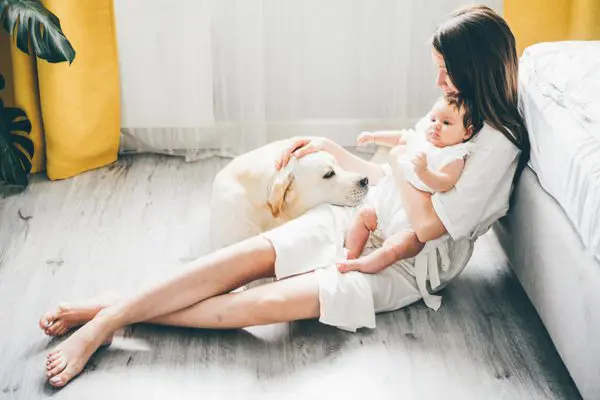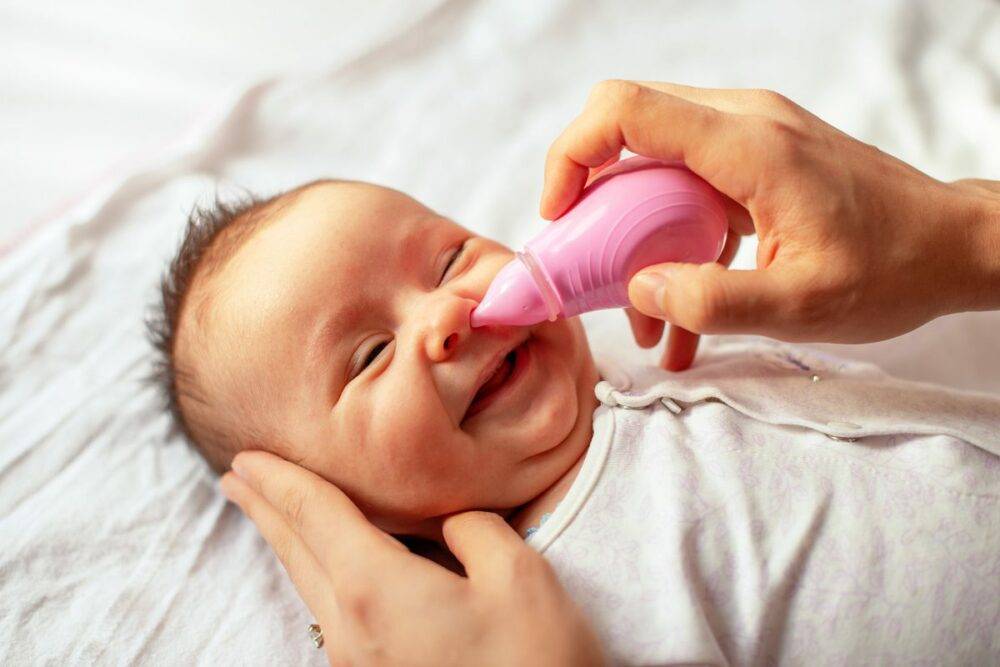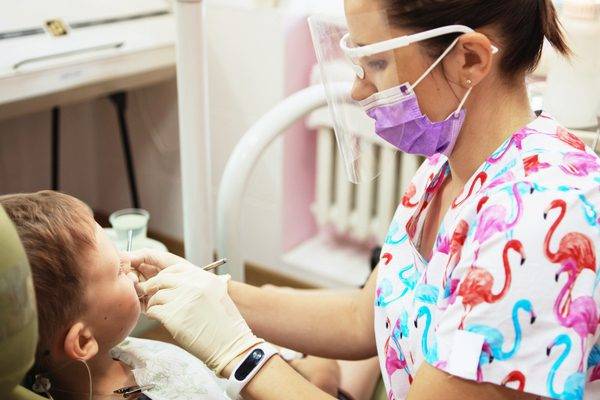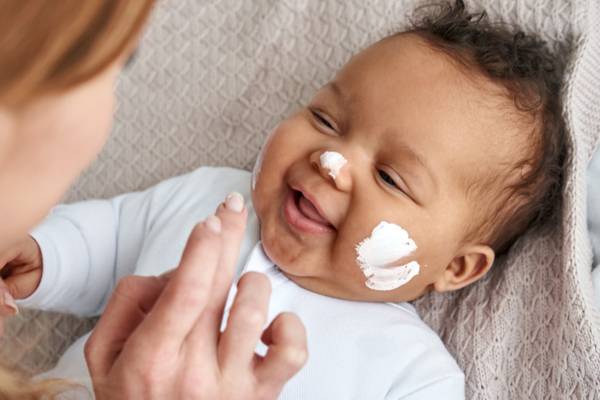For many couples, their dog is like their first child. But what does it mean for your fur baby when you bring home a new human baby?
“The same way you would have a plan in place to introduce an older sibling, you need to also have a plan in place to create a safe environment for your pet,” says veterinarian Dr. Rhesa Houston.
First and foremost, visit your vet to make sure your dog is up to date on all shots.
But you’ll need to prepare your dog mentally and emotionally for the new baby, too.
“Dogs have a keen sense of sight, hearing, and smell,” Dr. Houston says. “The new sounds and smells may have your dog on higher alert which can present itself as anxiety or stress.”
Here are some things Dr. Houston says you can start doing now to get your dog ready for the day you bring home your new bundle of joy.
Start a new routine for your dog now.
Just as we humans can get anxious and stressed when our routines are disrupted, so can dogs. And baby’s arrival is sure to change day-to-day life for your family. So, start developing a new routine before your baby is born.
“Dogs are very routine-based,” Dr. Houston says. “It’s important to evaluate your current routine and start implementing a routine that you can manage once the new baby arrives.”
Be sure that routine not only includes when you’ll feed your dog but also when you’ll take your dog for walks. “When dogs do not have a certain level of physical activity, it can turn into inappropriate behavior at home,” Dr. Houston says.
Even before your baby is born, consider pushing an empty stroller on your walks with the dog so the addition isn’t jarring once baby is coming along for those strolls.
Ease into new sleeping arrangements.
If your dog’s sleeping arrangements need to be changed, don’t wait until the day of baby’s arrival to make adjustments.
“You should start implementing a plan about four to six months prior to the baby’s arrival,” Dr. Houston recommends.
If certain areas of your home, such as the new nursery, will now be off-limits for the dog, this needs to be enforced early as well.
“Using a baby gate is a great way to have a separation between the room and other areas that the dog is able to access and it helps the dog get familiar with the idea of staying out of that space,” Dr. Houston says.
Make sure your dog still feels a part of the family.
Naturally, your new baby will be the center of attention for a while but be careful not to completely ignore your dog.
“Reduced bonding time or family time with your dog could have an impact on a dog’s mental health and wellbeing,” Dr. Houston says. “It’s important to create a plan that is inclusive of the family dog or dogs to keep the human-animal bond intact.”
You may be tempted to lavish your dog with lots of attention before the baby gets here, but that can be confusing, too. Consistency is best.
If you know that the time you spend with your dog will decrease once the baby arrives, slowly start making those adjustments early on in your pregnancy. This helps create a “new normal” that the dog will be comfortable with before baby comes home.
Be sure your home environment is still safe for your dog.
As you baby-proof your home to protect their child from staircases, sharp corners, and light sockets, you may need to dog-proof your home, too. Keep baby products like powders, washing gels, lotions, and essential oils out of the dog’s reach.
“You also want to be careful when using certain sprays and powders on the baby while your dog is in close proximity,” Dr. Houston says. “It can be dangerous if the dog is at your feet when using these items if they fall into your dog’s eyes or on their nose.”
You may need to teach an old dog new tricks.
To ensure that your baby will be safe around the dog, the dog will need to be able to follow basic commands such as “Sit,” “Come,” “Stay,” “No,” “Drop it and leave it,” and “Go to your crate.” If your dog has no prior obedience training, you’ll need to start working on this six months before baby’s arrival, Dr. Houston says.
She recommends reward-based over fear-based training methods. Fear-based training methods can cause anxiety and stress in a dog and lead to aggression issues. It can also cause your dog to start associating negative responses to you or the new baby.
When researching trainers, be sure that the trainer has at least one of the following certifications: CPDT- Certified Professional Dog Trainer, IAABC- International Association of Animal Behavior Consultants or KPA- Karen Pryor Academy.
Remember that mutual respect is key.
Initially, your goal is to teach your dog to respect the new baby using reward-based training methods.
“Using a doll can help you train your dog to respect the baby in its most vulnerable state as a newborn.” Dr. Houston says. “Along with using a doll, we would recommend playing white noise, sounds of baby crying and lullabies.” But use the doll as you would a baby, never let the dog play with the doll like a toy.
You can find all of these sounds on YouTube.
“I don’t recommend dogs licking or kissing babies in the face as there could be a transfer of a zoonotic disease,” Dr. Houston says. “A zoonosis is any disease or infection that is naturally transmissible from animals to humans.”
Once your child gets older, you’ll have a new task at hand.
“When the baby grows to be a toddler,” Dr. Houston says, “the roles will reverse, and you will need to teach the baby how to respect the dog and its space.”
By putting these tips in place, you, your dog, and your baby can all be one big happy family.




